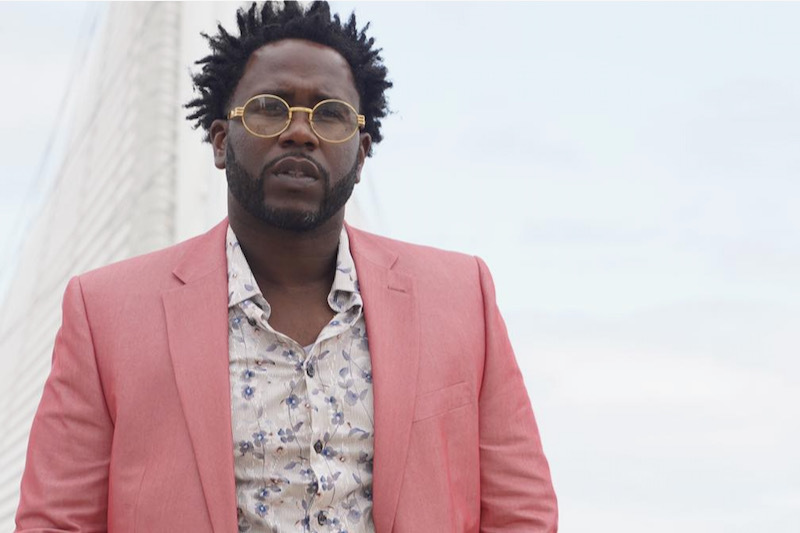The inclusion of 28-year-old Travis Ishikawa on the Milwaukee Brewers' Opening Day roster surprised some as the team headed into the 2012 season, but his addition to the organization and the decision to break camp with him made sense.
He's a slick a glove man at first base, with a .995 career fielding percentage. He is also experienced coming off the bench, is left-handed and has a bit of pop, having hit as many as 22 homers in a season in the minors.
His role has become more pronounced of late however, with the season-ending injury to first base starter Mat Gamel.
Ishikawa took some time to speak to OnMilwaukee.com about the challenges a new player faces in moving to a new city, his impressions of Milwaukee, the Brewers and the seemingly ever-changing role within the team.
OnMilwaukee.com: You signed here as a free agent from San Francisco – can you talk about what a ballplayer goes through in getting himself adjusted to a new city?
Travis Ishikawa: I got spoiled, living in the Bay Area so I was actually living at home (in Danville, Calif.) and going to the field every day so this is not only a new team but just a new experience, as far as just being away from family for extended periods of time. We got here, I think it was three days at home against St. Louis to find a place to live.
Obviously, the Brewers are good, (they) put you up in a hotel for a few days while you're trying to find a place to stay. It was just a hassle trying to get ready to play games and at the same time trying to find a place to live. It doesn't help that it's cold over here, too. You get used to the Arizona weather, it's nice – 80 degrees, 90 degrees – so I had to go out and find a coat right away. I'm having a blast over here. It's a great city. Thank goodness there's a roof and it's covered and it's indoors. I've enjoyed my time here so far, the short time I've been here.
OMC: What was appealing about Milwaukee as a free agent?
TI: Without really knowing the city too well, you look at the club. They've had a lot of success here before and I just felt like it'd be a good fit for me. Going into the offseason, I looked at it as this was the best team I had a chance to contribute right away. Obviously nothing is certain and I'm thankful to make the club, but just watching these guys play last year they just looked like they were out there having a lot of fun and played well. I've always heard good things about this organization. A lot of different little things helped persuade me to sing here.
OMC: Any "little thing" in particular that was a deciding factor?
TI: The biggest thing I would say was I felt I could help the club out right away here. A lot of other places it was almost a definite I would start in AAA and just hope something would (happen) to come back up.
Knowing that they lost (Mark) Kotsay and kind of that left-handed presence on the bench knowing I could help fill and it was a spot I was good in. That was a big deciding factor. Other things like I like Arizona for spring training and I'm kind of familiar with that. There were some American League teams that were interested but when it came down to it, I felt more comfortable in the National League. And the National League Central has some great places to play, good competition and again overall, these guys looked like they were having fun. And they're a great group and had a great ball club and I wanted to be part of that last year.
OMC: In talking with Jerry Hairston, Jr., the team made him feel like had been with the Brewers all year last year and it was a good clubhouse – does word like that get around to players?
TI: I didn't really hear a whole lot about (Milwaukee), I just heard it was a good place to play and things like that. I didn't realize until I got to spring training how good of a place it is here. Like Jerry said, within two weeks of spring training I felt like I've been a part of this organization for a few years. Everyone just welcomed me in and was more than accommodating, from the coaching staff and players, everybody. It made the transition of joining a team a lot easier. OMC: On the last nine-game home stand, did you try to get out into Milwaukee? How does a new player find out where to go?
TI: You (ask) guys who have been around, clubhouse guys, the coaches who have been here a few years – they know the places to go, things to do. But again, right now my main focus is to try and get back into that routine. Last year I was in AAA for half the season and I missed the other half to surgery, so I was just trying to get myself familiarized with being back in a big league clubhouse. I've spent most of my time here watching video or working on my swing, just trying to get that right routine, find that right routine to help me for that night.
OMC: So you haven't found a favorite place to eat or hang out just yet?
TI: No, not yet. Nothing yet.
OMC: You knew coming into the season what your role would be, but things have changed with the injuries and roster moves. Has it been hard to focus? Or do you not pay attention to it?
TI: I've spent a lot of time coming off the bench the last couple years so I found that right routine that's worked for me to prepare myself each day for that pinch hit or the late inning defense or whatever the manager is going to need me to do. I feel like I've prepared myself enough that unfortunately when Mat went down, I was already ready to just prepare as a starter. I'll try to ease it down a little bit to conserve some energy to endure nine innings rather than just that one at-bat.
OMC: How do you balance knowing you're going to get an opportunity to really show what you can do against putting too much pressure on yourself to perform when you know the team has expectations?
TI: It's easy to say, but honestly, you can't think about it. If you start putting that kind of pressure on yourself to perform, to think you need to get hits to stay in the lineup, you're going to end up pressing harder and trying too hard. For me, I've done that numerous times in my career where I felt like 'If I get a hit here I can play the next day' or 'If I don't get a hit here I'm done for the week.' I put so much pressure on myself I ended up just being terrible.
It got finally to the point where it doesn't matter what happens out there – I'm putting in the work, putting in the effort, trying as hard as I can and whatever happens I'm going to accept knowing I gave everything I've got. As far as playing every day or what the situation is, that's out of my control. So, the only things I worry about are my attitude and my effort. Those two things. I can't worry about if I'm going to play the next day."
OMC: You were part of the 2010 World Series champion San Francisco Giants. Where do you keep your ring?
TI: It's locked away. That's safe and secure.
OMC: There are only a handful of guys who ever get to experience that. You were 26 – do you think about it, and how does it affect a player who has a career ahead of him?
TI: I don't think about it too much. It's been a year and a half so now all of the highlights you see on TV of the World Series are of the Cardinals. It didn't change my outlook on baseball. I had a buddy tell me in '09 – Jeremy Affeldt, who went to the World Series with the (Colorado) Rockies in '07 – he told me once you get a taste of the playoffs it's all you can think about. Once you get there that's all you want. You just hunger to get to the playoffs because it's so much fun. He's absolutely right.
When people ask about that whole experience and I tell them the experience of the playoffs, and I'm sure any guy that was here last year will attest to the same thing, it's one of the funnest things. There is just nothing like a baseball game in October. If anything it kind of pushes guys a little harder to get there just to get that experience again.
I can't stress it enough how much fun it really is, the importance of every out, the importance of every run. It's such a short period of time. During a season, it's 162 games and you lose a tough one here or get a tough break there, it's like 'Well, we've got a lot more to go.' Any little thing in the playoffs can be huge. That just makes it so much more fun to play in those situations.
Jim Owczarski is an award-winning sports journalist and comes to Milwaukee by way of the Chicago Sun-Times Media Network.
A three-year Wisconsin resident who has considered Milwaukee a second home for the better part of seven years, he brings to the market experience covering nearly all major and college sports.
To this point in his career, he has been awarded six national Associated Press Sports Editors awards for investigative reporting, feature writing, breaking news and projects. He is also a four-time nominee for the prestigious Peter J. Lisagor Awards for Exemplary Journalism, presented by the Chicago Headline Club, and is a two-time winner for Best Sports Story. He has also won numerous other Illinois Press Association, Illinois Associated Press and Northern Illinois Newspaper Association awards.
Jim's career started in earnest as a North Central College (Naperville, Ill.) senior in 2002 when he received a Richter Fellowship to cover the Chicago White Sox in spring training. He was hired by the Naperville Sun in 2003 and moved on to the Aurora Beacon News in 2007 before joining OnMilwaukee.com.
In that time, he has covered the events, news and personalities that make up the PGA Tour, LPGA Tour, Major League Baseball, the National Football League, the National Hockey League, NCAA football, baseball and men's and women's basketball as well as boxing, mixed martial arts and various U.S. Olympic teams.
Golf aficionados who venture into Illinois have also read Jim in GOLF Chicago Magazine as well as the Chicago District Golfer and Illinois Golfer magazines.




.jpg)


